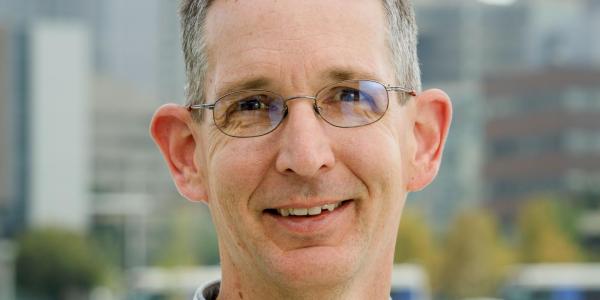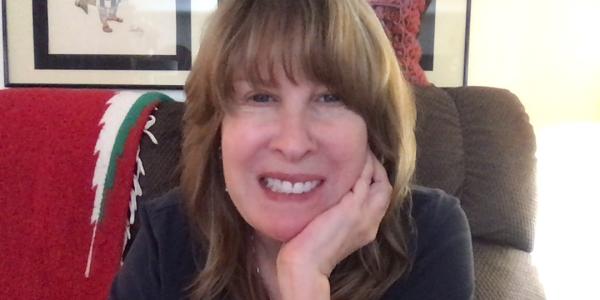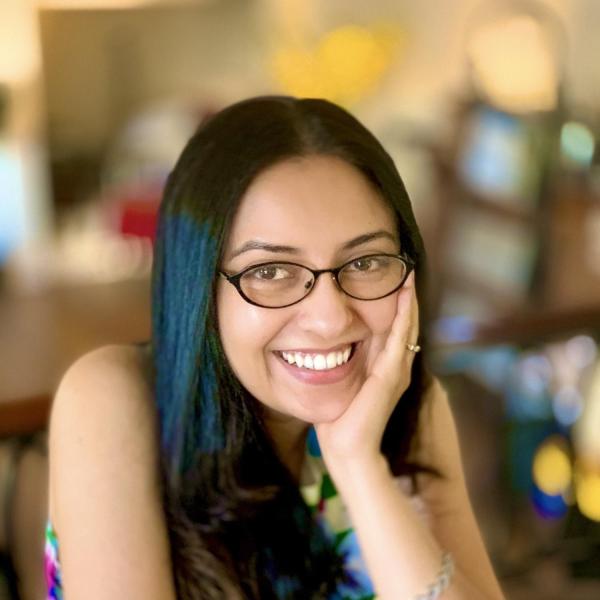
Soumia Bardhan
Department of Communication
College of Liberal Arts & Sciences
I promote a culturally responsive education and view diversity as a resource for gaining insight through listening, speaking, and understanding difference. With this impulse, my goal is to operationalize “intellectual quietness” in the context of learning and teaching. Intellectual quietness, according to Professor Marc Stierand, entails the acceptance that internal inconsistencies are opportunities for understanding phenomena of higher complexity. When our intellect is quiet and ready to engage uncertainties, we can challenge stereotypes, minimize prejudice, and inculcate empathy in the presence of difference. Also, focus on intellectual quietness helps promote the value of a “quiet education,” which is challenging the norm that being extroverted and active are desirable qualities in higher education. So, during my fellowship tenure, while exploring intellectual quietness I will also engage with the question: how can we encourage greater acceptance of quiet virtues in higher education?
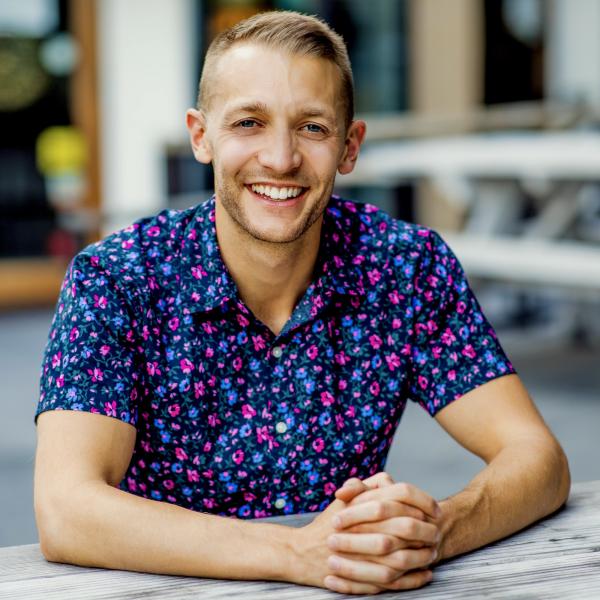
Cameron Blevins
Department of History
College of Liberal Arts & Sciences
I first came to teaching with certain ideas about "tough love" and rigor, laying out in my syllabus exactly how many points I would dock on a paper for every 24 hours it was late. I’ve since transitioned to what Catherine Denial calls "A Pedagogy of Kindness," trying to meet students wherever they are from a compassionate, rather than adversarial, relationship. My goal is to have students learn about history in new ways. This often involves rethinking traditional curriculum, such as assigning “unessays” (communicating through any medium besides a written essay) or having students engage in multi-day historical simulations. As a Thinq Fellow, I will continue to expand student skillsets in the humanities through my involvement with the Digital Studies Certificate, which blends the technical skills of computational analysis and media production with a critical understanding the cultural, social, and ethical dimensions of how the use of technologies shapes modern society.
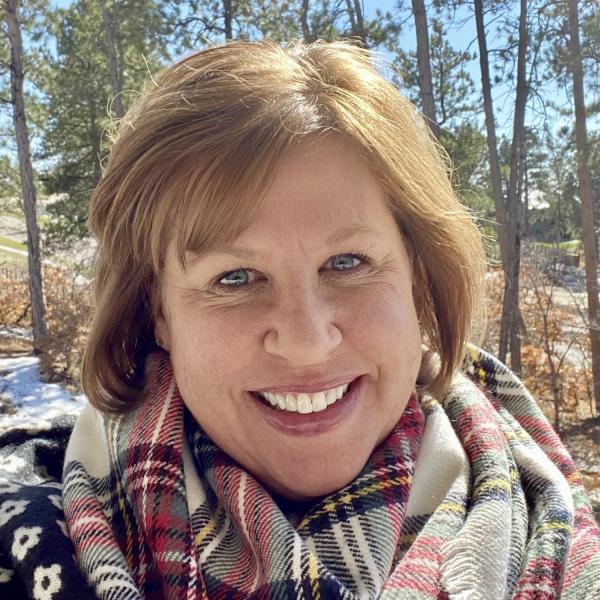
Wendy Bolyard
School of Public Affairs
As a teaching professor, I want to connect with students. Having only a digital platform to do so provides an exciting opportunity to look at teaching and learning with fresh eyes. More importantly, I believe the work of students deserves to be showcased or highlighted through some means. As a ThinqStudio fellow, I am looking at ways for students to create digital repositories of their accomplishments. It’s nice being a part of ThinqStudio knowing I won’t have to recreate the wheel, if you will, and where like-minded colleagues provide a sounding board for creative ideas. Thinqers take risks and are rewarded through the encouragement of other Thinqers. There’s nothing else quite like it.

Louise Bordelon
Department of Landscape Architecture
College of Architecture and Planning
One of my worst memories of learning at the college level involved getting a B minus on a semester long project that I poured my heart and soul into. I had learned so much but that wasn’t recognized; it felt like a slap in the face. I was demotivated to say the least. Henceforth, I produced what I knew the professors wanted to see. And I stopped taking risks. And I stopped pushing creative boundaries.
I now teach introduction to landscape architecture graphics and studios and I recognize that design education and grading are almost entirely subjective. I want to change the way students interact with their peers and how they approach their learning. Instead of pitting them against each other for a place on the grading curve, I am testing methods of feedback and self-assessment, enabling them to take creative risk and fostering a collaborative and supportive environment.
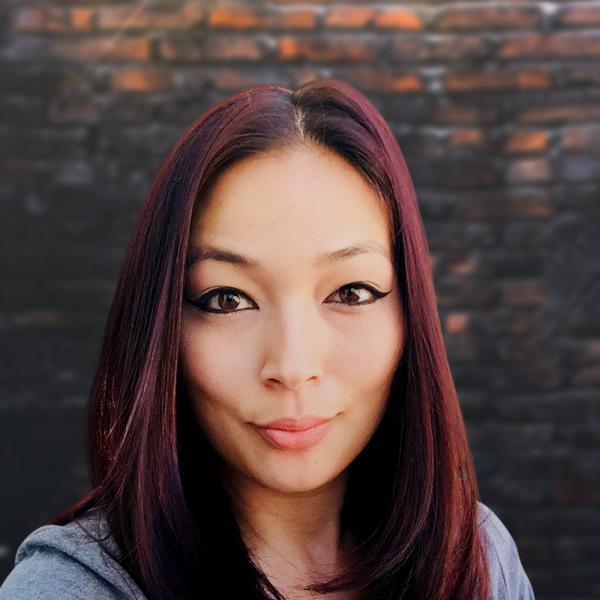
Robin Brandehoff
Culturally & Linguistically Diverse Education
School of Education & Human Development
Theatre has and always will be a liberatory form of learning for me—it’s been a symbol of community, an archway into learning about and embodying human struggles and solutions, and an opportunity for escapism. Education as a system is oppressive and daunting, but learning as explored through theatre has helped me to embrace my identity as an eternal student and a community conspirator.
As a Thinq Fellow, I want to explore how to bring Theatre of the Oppressed to our campus as pedagogy and as a method of exploring and sharing data beyond formal (read: super academic) practices. Specifically, I wonder: How can Theatre of the Oppressed be used as a vehicle for cross-disciplinary academic, professional, and community work, particularly as a lens to examine marginalized groups in oppressed social and educational contexts?
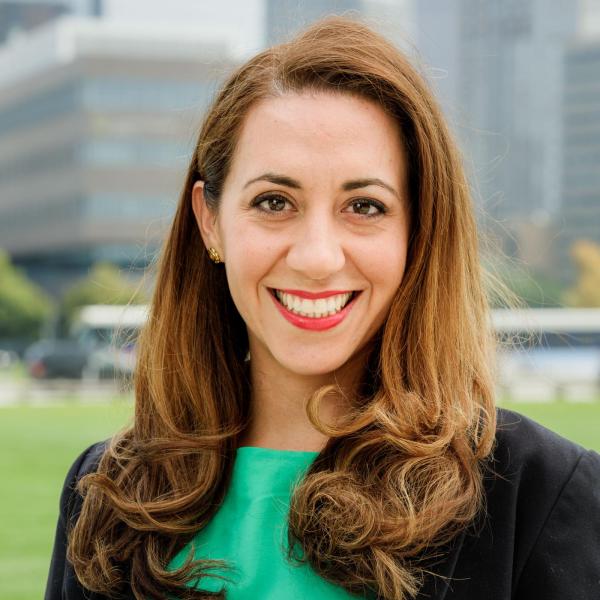
Sofia Chaparro
Culturally & Linguistically Diverse Education
School of Education and Human Development
I am constantly thinking about teaching and learning. The COVID-19 pandemic presented a challenge as well as an opportunity: how can we create strong learning communities online? What are ways that we can feel connected, even if it’s through our little Zoom squares? What keeps learning fun, exciting, and engaging? How do we facilitate learning environments and learning experiences that inspire our students to learn and continue growing? And, as a teacher of teachers, how do I inspire my students to do the same for their students? I continue to grapple with those questions as I design an inquiry-based, student-centered capstone course for MA teachers that hopefully, provides some answers, and more importantly, inspires more questions.
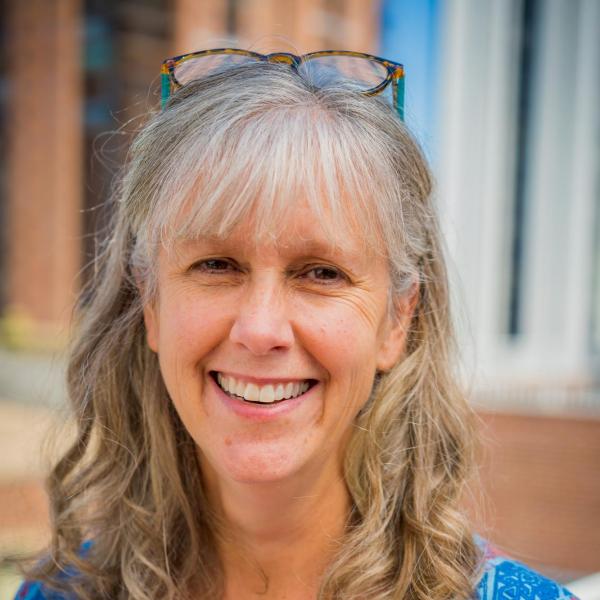
Lori Elliott
Literacy, Language, and Critically Responsive Teaching
School of Education & Human Development
I am excited to be involved with the ThinqStudio community as we work together to challenge, expand, and refine our teaching. As a literacy education faculty member and ThinqStudio fellow, I have the opportunity to create an open source multicultural children’s online library and resource space that can be utilized by students across undergraduate and graduate education programs. Working on this project and developing a “Thinqer” mindset exemplify collaborative, connected, and innovative education that nourishes the soul of my teaching.
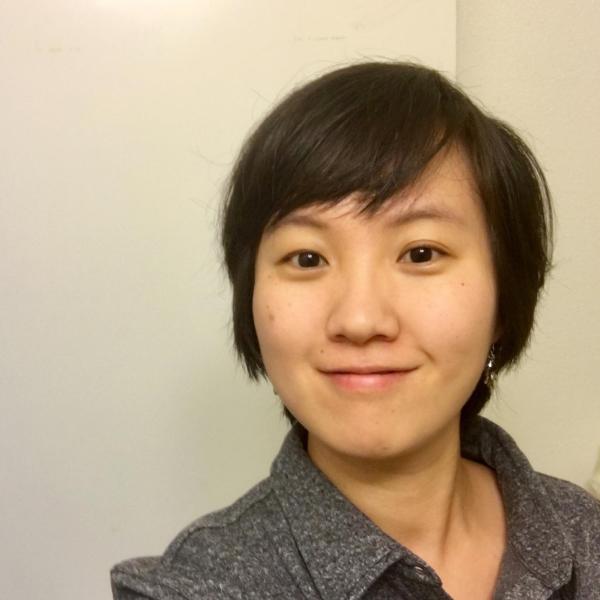
Xiaofei Gao
History Department
College of Liberal Arts & Sciences
I began my job at CU Denver in August 2020, in the middle of a global pandemic with no clear end in sight. For me as an educator, the past year and a half was challenging. But the disruption brought on by the pandemic also provided opportunities to try new things in teaching. At ThinqStudio, it has been inspiring to see how innovative ideas have emerged as a result of collaborations and experiments. The pandemic has exposed long-standing inequalities in higher education, but at ThinqStudio, fellows explore and test inclusive practices that can reduce disparities and help more students succeed. I am excited to keep learning from and contributing to the ThinqStudio community.
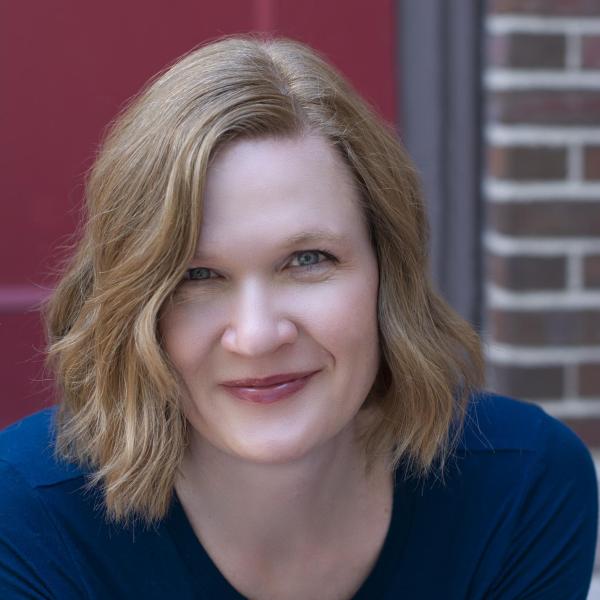
Ashley Hoffman
Visual Arts
College of Arts & Media
In teaching animation, I encounter students who have a great passion for the subject matter but also a misconception that the work will be fun and easy. When they find out how much work is involved, they tend to disengage. I'm hoping to find ways to bridge that gap between the passion that brought them here and the lifelong learning that will help them achieve success, however they define that. I hope to find ways to ignite student engagement, particularly by harnessing the power of connections between students. Just as one “bad apple” can demotivate a whole class, I’ve found that one interested, charismatic student can forge connections that keep students actively involved and inspired. I’d like to find a way to catalyze these natural interactions to encourage students from all backgrounds to gain confidence and internal motivation.
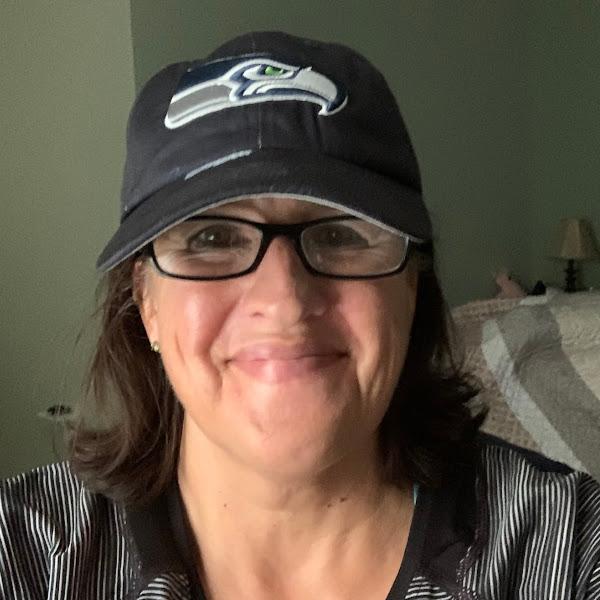
Lisa Johansen
Department of Integrative Biology
College of Liberal Arts & Sciences
I teach all levels of Biology classes—from 100+ person freshman classes to 4000-level courses with 24 students, both in person and online. One of my goals in joining ThinqStudio is to improve my support of student engagement. Yes, students engage with the material for a grade. However, I want to figure out ways to draw students to the material because they see value in learning it, not just for a grade. In addition, I want students to learn skills in my classes that will support their success in other classes and in their future careers. I hypothesize that when students gain confidence in critical thinking and problem solving, they will be more engaged with the material, and they will go from memorizing facts to understanding what these facts mean, how they can be used. My goal is to make learning relevant.
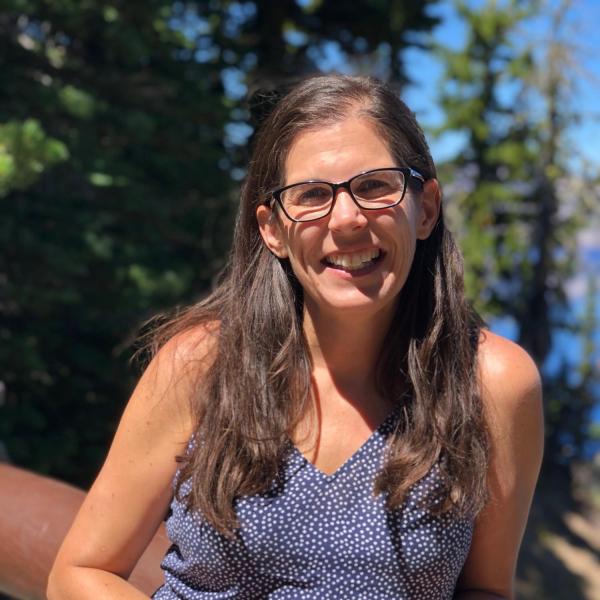
Annika Mosier
Department of Integrated Biology
College of Liberal Arts & Sciences
My core values include serving underrepresented students in science and helping all students thrive in my courses. When I look out at my classroom, I see students with unique perspectives and life experiences that each enrich our classroom community. I use various teaching and learning strategies to help students connect our course content to their communities, environment, history, and culture. I empower students to make important decisions about their learning experiences, how they will create and apply knowledge, and how they will demonstrate their learning gains. This is a growth-mindset approach to learning and teaching based on the expectation that everyone can learn when provided with the right conditions and support. I am excited to continue to explore, learn, connect, and create with the ThinqStudio community!
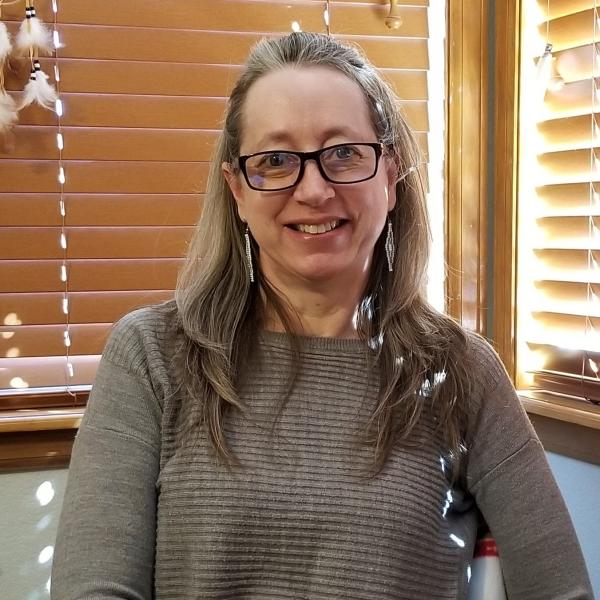
Timberley Roane
Department of Integrative Biology
College of Liberal Arts & Sciences
Greetings. In addition to my teaching roles, I direct a CU Denver certificate program called Environmental Stewardship of Indigenous Lands (ESIL). I teach general microbiology (a lecture/lab course with 120 students!) and microbial ecology (a cross-listed undergraduate and graduate course). I strive to creatively engage students with STEM but have found many approaches to higher ed teaching exclusive and defining. As a result, I joined ThinqStudio in 2020 and found a community of professionals to help me think innovatively about engaging all students in my classes. Already, ThinqStudio has had a positive impact on my ability to work with students both inside and outside of the classroom, especially in the time of COVID. ThinqStudio has also provided a safe space for self-expression and out-of-the-box thinking. I am looking forward to continuing to learn from others who work to inspire through teaching.
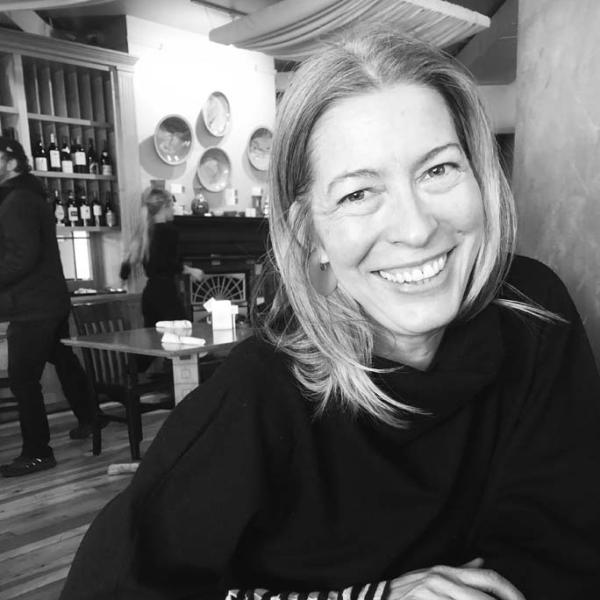
Mira Woodson
Department of Architecture
College of Architecture & Planning
I am a multidisciplinary synthetic designer and educator. My work extends across graphic visualization and conceptual architectural design.
At the core of my process is collaboration, which includes fostering participation, information exchange, and iterative design process with colleagues, students, and clients to bring a vision to manifestation. I attempt to create positive, productive environments for design and production. My interests and skills continue to build and inform one another, including early explorations of dance and movement (ballet/jazz/modern), theater (set construction/performance/costume design) and line cooking, in which I brought together the elements of flavor, hunger, and body memory. These varied experiences reinforce my approach to education, exploring how fluidly all of these disciplines can come together and complement each other.
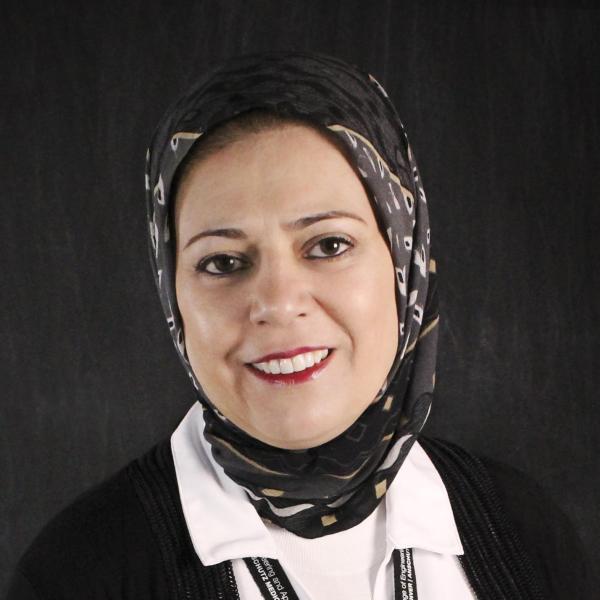
Maryam Darbeheshti
Mechanical Engineering
College of Engineering, Design & Computing
I joined ThinqStudio in 2017 upon the recommendation of one of the four original Thinqers, Pam Laird. In spring 2018, as a faculty fellow, I attended the Digital Pedagogy Lab (DPL) conference in Mary Washington University. My experience with this conference was amazing, and it gave me a different perspective on creative thinking, writing, and the pedagogy of learning and teaching. Joining the leadership team in 2019 opened yet another door for me to explore more, get more involved, and have a more impactful voice. At ThinqStudio, we listen to each other, we challenge each other, and we come back stronger and more determined. Unconferencing, Unboxing, Undoing business in a different way is our passion at ThinqStudio.
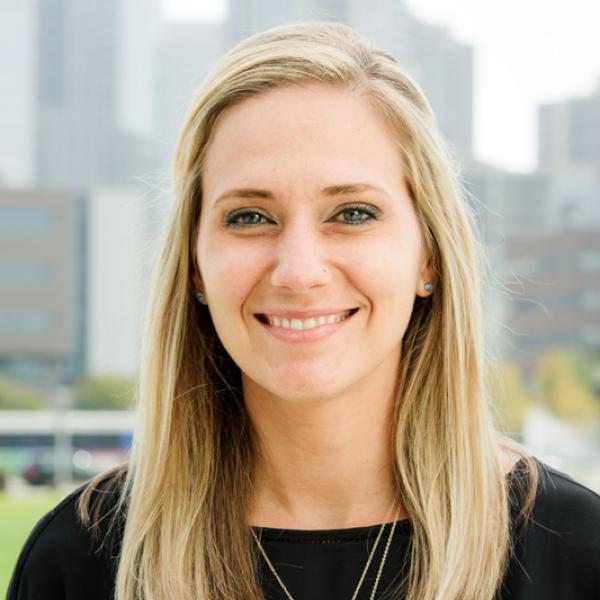
Lisa Forbes
Counseling Program
School of Education and Human Development
Not too long ago, in a university that shall remain nameless, a colleague said to me: “you need to color inside the lines a little bit more.” Little did this person know, instead of pulling me back to the status quo, this comment fueled my rogue fire. When I learned about ThinqStudio, I was like a moth to a flame because ThinqStudio is as rogue as it gets in the academic world. Thinq allows me to pursue the things I wonder about and the things that inspire me. As a Thinq-er, I’ve explored vulnerability in teaching, playful pedagogy, and challenging the traditional forms of education by considering students’ humanity, emotions, and neurotransmitters. I am a mental health counselor, I’m training to be a play therapist, and I believe learning doesn’t have to be a bore! Largely, I’m on a rampage to challenge the traditional lecture-based mode of education through the use of a playful pedagogy. Play is a lot of things: it’s an activity, play(fulness) is a way of being, and you can also “play” with traditions and boundaries so they aren’t so rigid and defining. In that sense, play is creativity, flexibility, freedom, and rebellion. I’m always looking for new playmates, so come play with me: www.professorsatplay.org
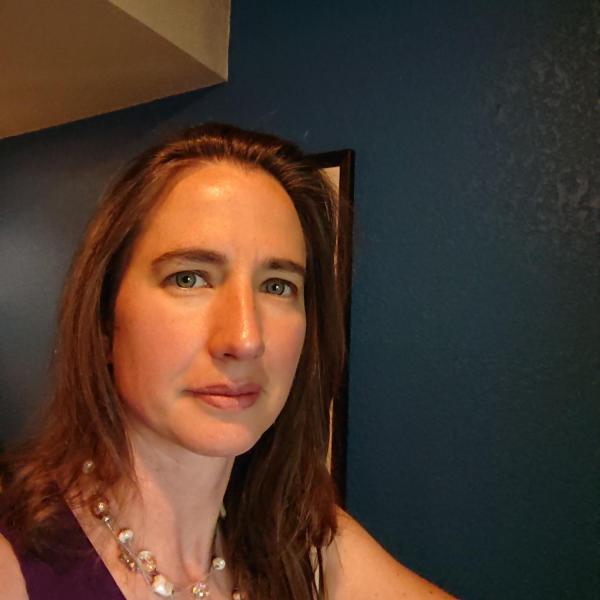
Kate Goodman
InWorks
College of Engineering, Design & Computing
Wherever people are earnestly engaged in improving teaching and learning, with all the tools we now have at our disposable, that’s where I want to be. As an engineering education researcher, and a leader within Inworks, where our mission is to impart the skills and habits of mind to work on “hard human problems”, I know that learning is one of the most human problems we could engage in! Thinq Studio has given me a place to meet with fellow explorers in this space. Let’s ask the hard questions! How might we get beyond ‘the way we’ve always done it’ – in terms of assignments, grades, and more? How can we delve into what it means to motivate students? If learning happens all the time, in all kinds of settings, how do we support and guide students? Thinq Studio has shaped my thinking on these hard questions.
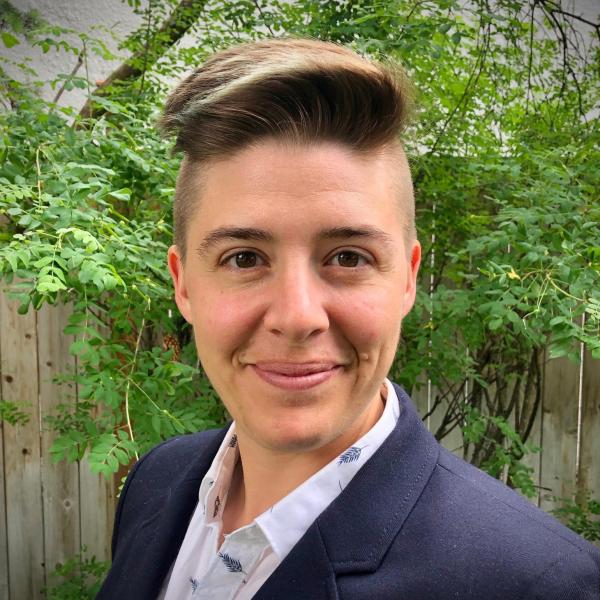
Rachel Gross
History Department
College of Liberal Arts & Sciences
Many years ago, I joined a group called the Radical Teachers' Collective. There, fellow graduate students taught me that pedagogy could be political. I began attending ThinqStudio events when I arrived at CU Denver in 2020 because I saw in the group's activities a shared commitment to conceiving of what happens in the classroom as radical. Being a ThinqStudio Fellow has given me access to the pulse of digital pedagogy on the campus and taught me how to ask critical questions about challenging the status quo of education. As a public historian involved in local community projects, I am eager to bring the lessons of ThinqStudio to my interactions not just on campus but beyond it.
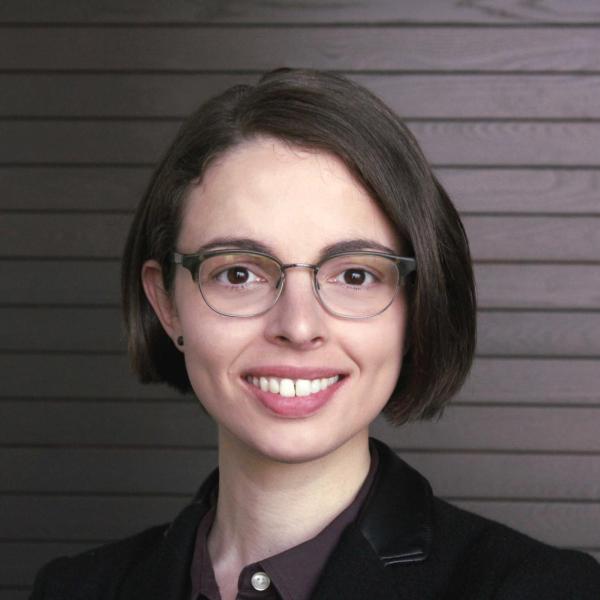
Amy Hasinoff
Communication Department
College of Liberal Arts & Sciences
I found a new approach to teaching when I attended the Digital Pedagogy Lab conference in May 2017 as a ThinqStudio fellow and learned about alternative assessment and “ungrading.” I became fascinated by the growing body of research suggesting that grading students’ work might actually hinder their learning, creativity, and engagement, and I began developing different approaches to assessment—including asking students to regularly reflect on their work and ultimately determine their own grades at the end of the semester. As a ThinqStudio fellow, I organized discussion groups and a book club for Hacking Assessment (Sackstein, 2015) in Fall 2017, and organized a 1-day workshop titled “Beyond Grading” the following semester. I reflected on how my thinking on assessment and grading has evolved over time in an essay titled “Do You Trust Your Students?” published in Hybrid Pedagogy in 2018. Since then, I have continued to build and refine my “ungrading” approach each semester.
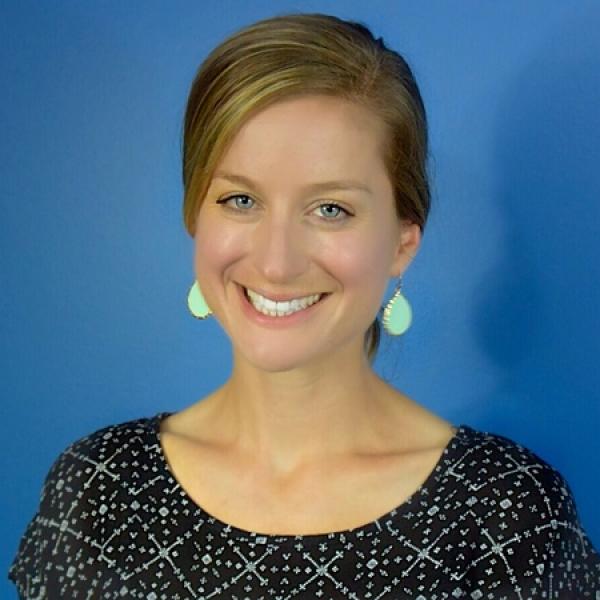
Julia Kantor
ASPIRE to Teach
School of Education and Human Development
As a teacher-educator, I help prepare and work alongside educators to develop critical and progressive pedagogies that create equitable learning opportunities for all students. My work with ThinqStudio supported and augmented this work, helping me to explore the ways that Connected Learning and digital pedagogies enable teacher learning that is equitable and focused on developing teachers as active agents in their profession. This work is ongoing as various new education policies and initiatives sometimes support and sometimes constrain this goal. Nevertheless, rooting my work in principles of design, equity, and agency is sustaining for me as a teacher-educator and, I hope, for my teachers, as well.
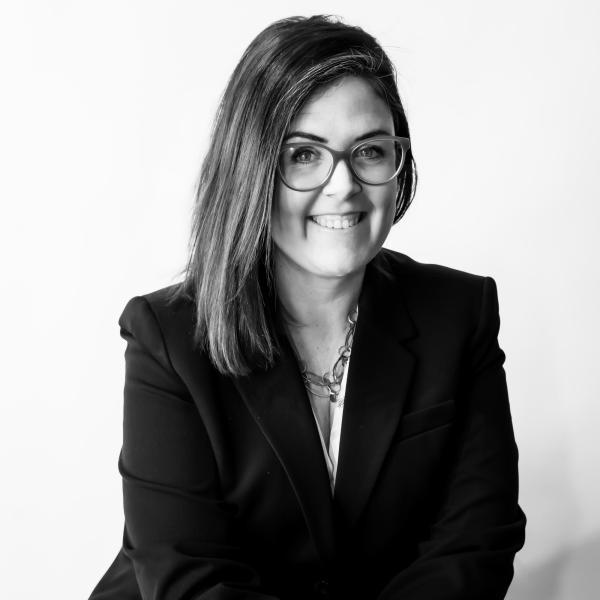
Andrea Laser
Early Childhood Education
School of Education and Human Development
I arrived at ThinqStudio shortly after making a career transition from early childhood settings to higher education (that's right, I went from teaching children starting in their very first educational experience to teaching adults possibly in their last formal educational experience). ThinqStudio is a community where I find space to play, explore, and justify how innovation and higher education should cross paths. Right now, I am focused on how mail can serve as a way to build community and I am always interested in promoting more humanistic ways of approaching our work with students.
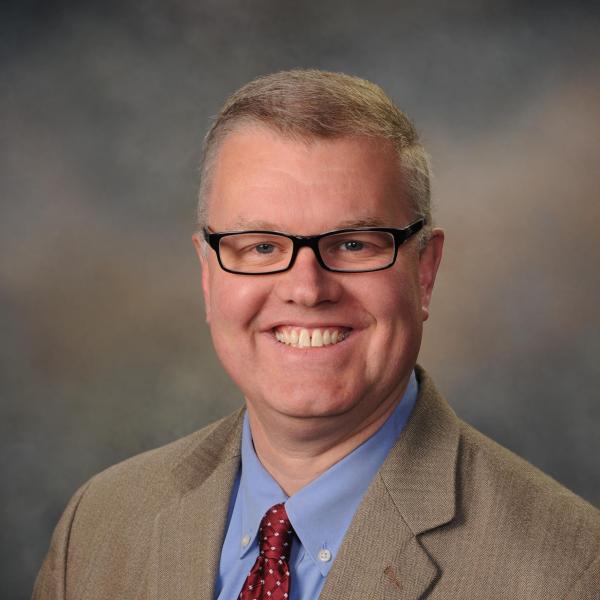
Scott McLeod
Leadership for Educational Organizations
School of Education and Human Development
As one of ThinqStudio's original Faculty Fellows, I have attended Digital Pedagogy Lab in Vancouver, conducted a project focused on redesigning postsecondary instruction for deeper learning and student engagement, served as a mentor for a later Faculty Fellow, and participated in discussions regarding how CU Denver values 'online presence' in the RPT process. I also was a member of the university's original ACUE cohort and have since been a participant in two additional ACUE microcredentials. My current work focuses on leadership and instruction in P-12 schools for deeper learning, greater student agency, more authentic work, and rich technology infusion. My fourth book, Leadership for Deeper Learning, will be published in Summer 2021. I am starting two new podcasts in Spring 2021 that will be focused on leadership and instructional redesign for deeper learning and student engagement. Follow along at my blog, Dangerously Irrelevant!
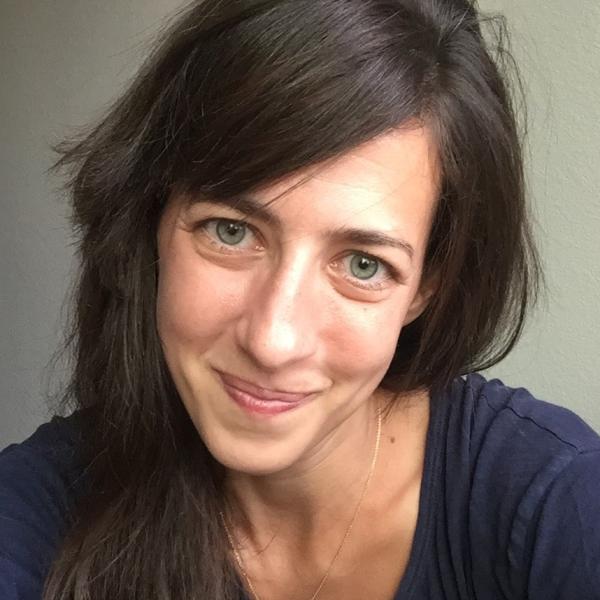
Beth Pugliano
Visual Arts
College of Arts & Media
I think a lot about process both in my own work and in my teaching. One of the things I most value about ThinqStudio is the space and encouragement it gives me to explore, tinker with, and wander around processes. I also often use basic diagrams to help me think through systems and connectivity. I made a diagram about my interests and ThinqStudio, which you can check out here.
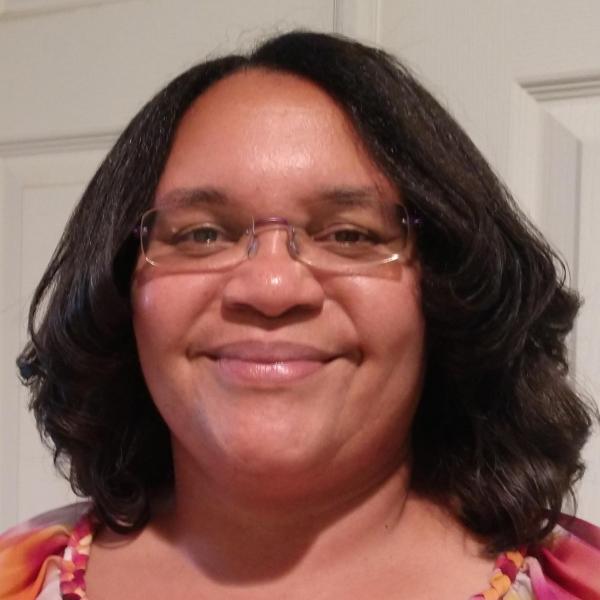
Ronica Rooks
Health & Behavioral Sciences Department
College of Liberal Arts & Sciences
As a ThinqStudio Faculty Fellow (2018-2019) I learned about incorporating collaborative digital assignments with students into my teaching and presented on integrating open education resources (OER) into courses to improve engagement and student accessibility to higher education. Building on my exploratory training with critical digital pedagogy, I became the College of Liberal Arts and Sciences’ (CLAS) Director of Online Education. I’ve worked to collaborate across our university’s digital ecosystem to support and provide opportunities for faculty, including working with Auraria library on OER workshops; Open CU, a cross-campus CU system group supporting OER use among faculty; the Office of Digital Education to support some CLAS online degrees; the Online Education Committee to advocate for and review service agreements for online education at CU Denver; the Center for Faculty Development and Advancement on creating diversity statements for graduate students and faculty; and co-chairing the search committee for the Associate Vice Chancellor for Digital Strategy and Learning to lead and bridge digital pedagogy work on our campus. I hope to continue my collaboration with faculty and apply this learning to my teaching and student mentoring.
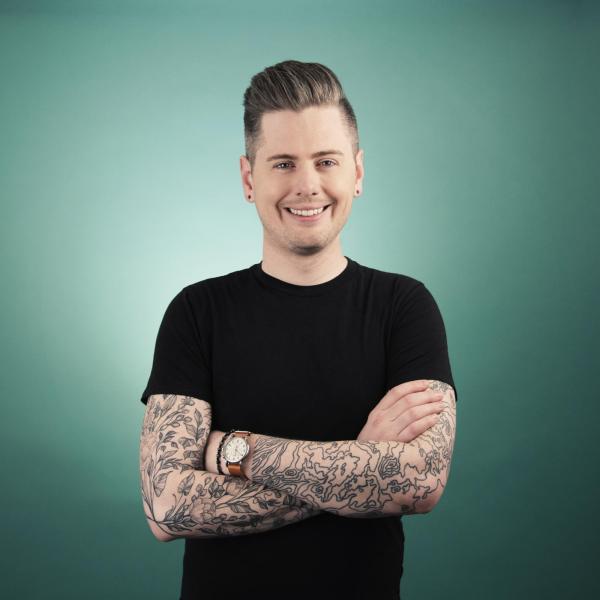
Shea Swauger
Research Support Services Department
Auraria Library
Hi! My pronouns are he/him. I'm a librarian, which means I care a lot about privacy. I'm also fascinated by technology, which means I'm usually grumbling about some new surveillance software and the erosion of privacy. I joined ThinqStudio to deepen my work in these areas and found an amazing community to support me. For example, I led a ThinqStudio workshop called “The Devil Wears Data” about the politics of data and ed tech. I often vacillate between “Hell Yes Let's Change the World” and “Burn It All Down We're Screwed,” both of which, surprisingly, come in handy while working in academia. My main research areas are how technology from prisons and policing are being used in educational settings and how abolitionist theory and activism can counter them.
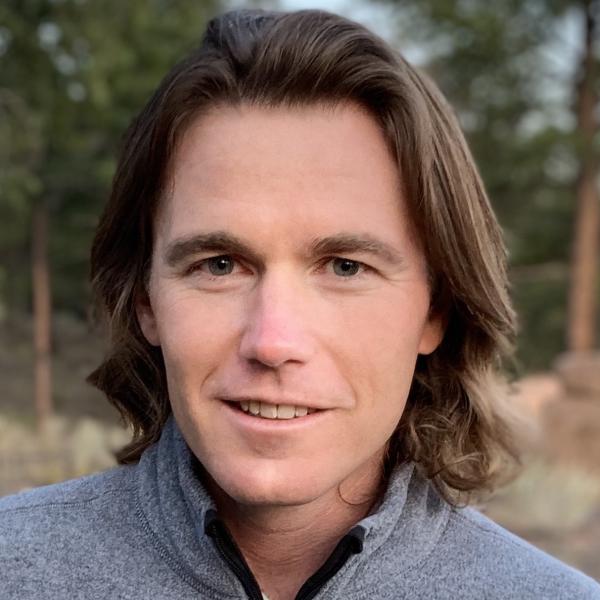
John Tinnell
English Department
College of Liberal Arts & Sciences
I was a ThinqStudio faculty fellow during the 2017-2018 academic year. Through the fellowship, I developed an interest in student-created Open Education Resources (OER) and adopted OER as a framework for designing new assignments into my courses in digital rhetoric and public writing. I continue to structure many of my classes around public-facing digital OER projects. This fall my students will be making narrative history podcasts about CU Boulder’s renowned Conference on World Affairs; we’ll be drawing upon archival materials from the University’s Special Collections, which contain a wealth of audio records documenting the Conference’s 70-year history. More about my teaching and research can be found at johntinnell.com.
Dennis DeBay
STEM Education
School of Education and Human Development
Director of ThinqStudio
The phrase “teaching and learning” implies that the teaching part of the learning process is where we begin. However, does this lead to an emphasis on the didactic, teacher-centered mode of instruction? I say we consider the work of “teaching and learning” in its entirety under the umbrella of learning. Exploring this involves some reflection. Are we here because we love our content, have a strong content identity, and we wish to impart this knowledge to our students? Or do we want to help students build their own identities within the content? To help them consider themselves scientists, poets, geographers, and mathematicians? My focus is the latter. I believe we are here to create learning environments that have students bring their own lives to our content—to bring wonder and excitement to our work. In short, my focus is to humanize Pre-K through Higher Education learning by pushing the boundaries of what can be.
Manuel Espinoza
School of Education and Human Development
I work with CU Denver undergraduates as thought-partners. The undergrads I mentor also mentor me; these are reciprocal and dialogical relationships. We are Hypothesis converts who use this annotation tool in unintended and unexpected ways. (Trust me, the Hypothesis folks told us that!) I like when we scrape against the tool’s limits because it shows us the contours and force of our thinking. Right now, the Right2Learn Dignity Lab—the research workshop that is the fruit of working alongside undergraduates—is in the midst of a campaign to amend the “education clause” of the Colorado constitution, which governs the provision of public education in our state. Our goal—the social prize—is to supplant the language of “thorough and uniform” with the language of human rights, the lexicon of educational dignity. The role Hypothesis played in furthering our inquiry and our learning cannot be overstated. It was vital and transformative. We know what we think we know about dignity in education because Hypothesis gave us the means to excavate those meanings from landmark court cases. ThinqStudio is one of my many homes at CU Denver, and I am a ThinqStudio denizen for life.
Michael Jenson
Architecture
College of Architecture & Planning
The “Pandemic” has transformed societal norms and expectations regarding how we work, learn, and communicate, especially “face to face.” Though digital technologies such as zoom have been available for years, their transformational impact had been limited. Personally, a rare positive emerging out of the collateral damage of COVID is that my interest in exploring the potential of new digital technologies, online platforms, and cross-disciplinary pedagogical theories to better conceptualize more integrative and inclusive learning environments has taken on a new enlarged role and sense of urgency in both my teaching and research. Once a “side” interest, such explorations are now at the forefront of my daily thinking regarding the necessity of envisioning innovative educational programs that can span disciplines to allow greater access to the benefits of higher education by overcoming traditional obstacles such as distance, cost, and disciplinary exclusivity.
Vivian Shyu
Psychology Department
College of Liberal Arts & Sciences
Over the past 5 years, ThinqStudio has provided an important layer to my career as an educator, leader, and professional within the CU Denver community and beyond. From my first semester as an Explorer, to my year as a Faculty Fellow, to my current role as a highly invested community member, ThinqStudio has been one of my favorite things. I have met and worked with colleagues from across the campus, many of whom I now hold as good friends. I have learned from and been inspired by the courageous, adventurous spirit of ThinqStudio as an entity, and from all innovative and creative faculty it convenes. One of my shining moments as a ThinqStudio member was the chance to sit at a table with a dubious Regent, explaining the value and rigor inherent in the Ungrading work that I and several ThinqStudio members practiced as a result of our ThinqStudio involvement. And while I didn’t leave him as a stalwart supporter, I did leave him with a more open mind on the subject than he had come in with. That was a lot of fun.
Dale Stahl
History Department
College of Liberal Arts & Sciences
I teach courses on Middle East and Islamic history, the history of technology and the environment, and global history. ThinqStudio helped me reconsider the roles of student and teacher. I began to see my students as explorers but then realized that traditional formats did not honor that view. My project involved rethinqing a seminar as a student-designed and directed exploration. Roles shifted in this format: students wrote the rules, prepared the exams, designed and executed a final project, and assessed their progress. I became less an instructor and more a guide to new frontiers of knowledge, and students helped chart the class to destinations emerging organically out of discoveries. I later brought these strategies to all my courses, relinquishing top-down control and “the syllabus as contract” in favor of shared responsibility and a collaborative journey. Such approaches have made rich, complex subjects more approachable to students and more relevant to their lives and future goals.
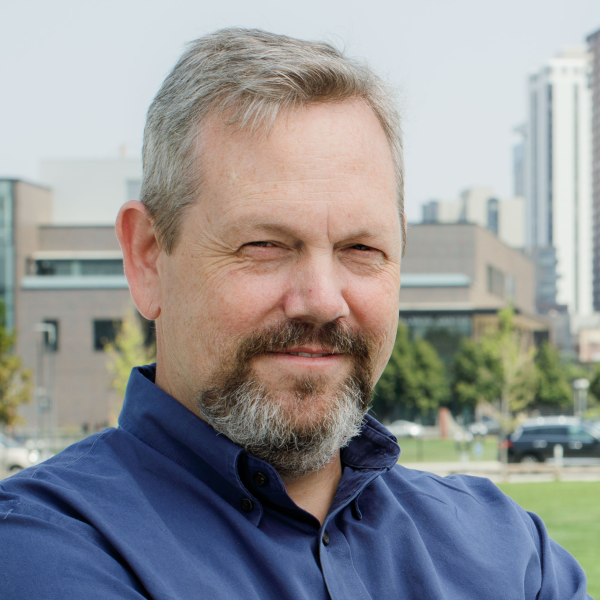
Brad Hinson
Digital Learning Design & Technology
School of Education & Human Development
I am a serial creative (n) chasing digital windmills. I have spent a few decades teaching, playing, and learning with the digital spaces and digital people of higher education. I teach, develop, and oversee various nouns related to digital-education and technology services @CUDenver.
Here is my impressive list → I wear hats in the SEHD, ThinqStudio, Digital Pedagogy Lab, and LETTScommittee. I am an active-affiliate with the altMBA, Connected Learning Alliance, Ness Labs, On Deck, the Future of Storytelling (FoST), and the Mozilla Foundation. I can be found thinking and tinkering with the interwebs at THiNGkeriNG.
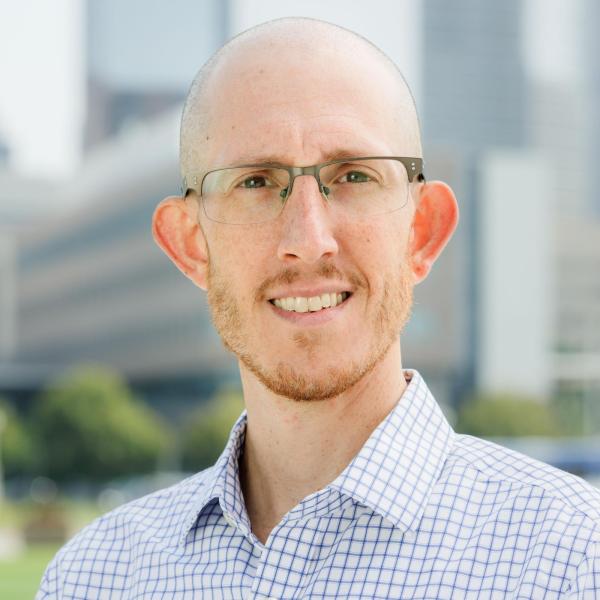
Remi Kalir
Learning Design & Technology
School of Education & Human Development
I research how social annotation facilitates collaborative, open, and equitable learning. During the 2020-21 academic year, I am serving as Scholar in Residence at Hypothesis. In this capacity I seek to advance collaborative, partner-driven research such as with a large-scale project to investigate undergraduate students’ social annotation practices. I am also co-founder, facilitator, and research director of the Marginal Syllabus, a social design experiment that sparks and sustains conversation about educational equity through collaborative technologies and partnerships. My book Annotation is forthcoming April 2021 from The MIT Press.
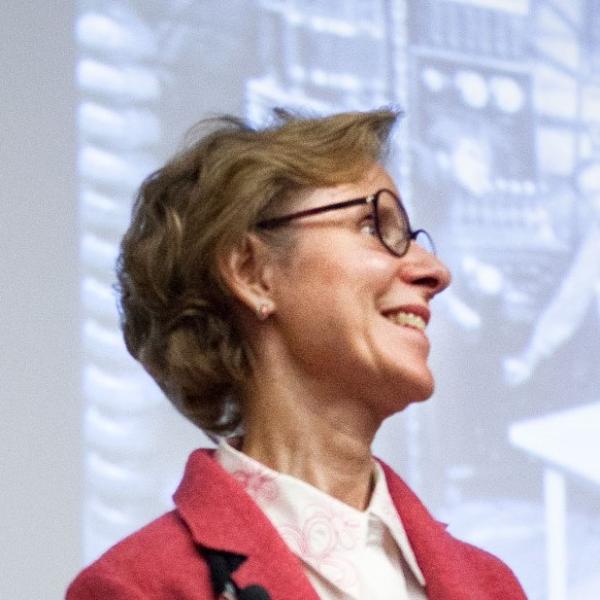
Pam Laird
History Department
College of Liberal Arts & Sciences
Rarely do the stars align in the academic cosmos to bring together spirits from such disparate pockets as the original four Thinqers. By extraordinary good fortune, I met Remi Kalir and Brad Hinson; Michael Zinser had already long been high in my estimation for his dedication to building integrity into online education here at CU Denver. Once those three met and recognized their common principles, the spark for ThinqStudio was lit. The greatest regret of my five decades of teaching is that I didn’t have earlier the benefits of learning how to guide students’ learning from these three champions and our colleagues who have since joined us in ThinqStudio. Community building has always been one of my goals, and I love how ThinqStudio has given me opportunities to fulfill that goal with great people doing splendiferous work.
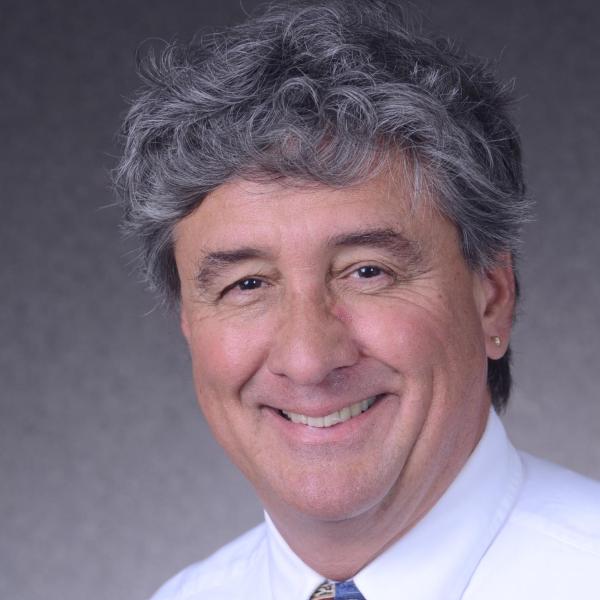
Michael Zinser
Psychology Department
College of Liberal Arts & Sciences
I’m glad to have found myself included among people with passion and a sense of purpose for our learning mission, and to have been there when this ThinqStudio adventure got started. I’ve been welcomed since. What I love most is the boldness, the impishness, the creativity, and the sense that all this can be fun and joyous, at least sometimes. These days I’m at the interface between faculty and administration, serving as Faculty Assembly chair. ThinqStudio kin are strongly in the mix there. There is much at stake. It is our time to ReThinq.

